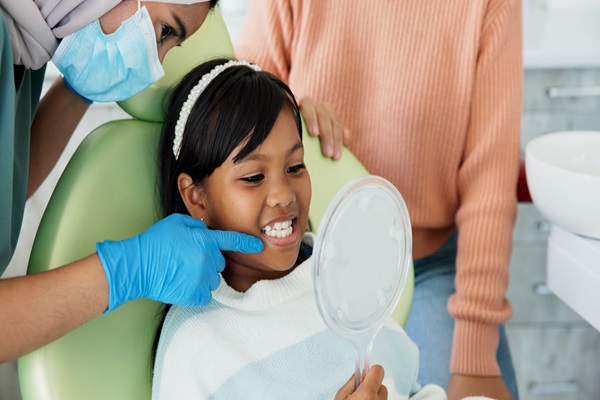Preventing Childhood Cavities: Tips and Tricks From a Dentist for Kids

Wondering what a dentist for kids recommends for preventing cavities? Read on to learn more. Parents often have problems getting their kids to practice good oral hygiene. Children’s affinity for sugary treats can make them develop cavities, which can be painful. They can also be susceptible to other dental problems. You can talk to a dentist for kids for advice on how to prevent childhood cavities and keep your children's teeth healthy.
Advice from a dentist for kids on how to prevent cavities
Cavities, also called caries, are a result of plaque accumulation. This plaque consists of bacteria that slowly destroys the enamel on the child's teeth. Enamel does not regrow, opening the door to dental caries. They make holes in the infected teeth. The kid might not even feel any pain initially, but they will most likely have other oral health issues and pain once the infection spreads.
The following are some ways to reduce the risk of tooth caries in children:
Good oral care routine
To maintain a healthy oral care routine, begin early. Healthy teeth during childhood will help ensure good teeth in adulthood as well. Make the process fun and children will appreciate the regularity of the oral care routines. Parents can brush and floss together or play the kid's favorite song during the process. An early start can encourage good oral hygiene and prevent cavities from developing down the road.
Limit certain foods or drinks
Parents should limit the consumption of sticky and sugary drinks and foods. They include cookies, juices, soda pops, candies, cake, and sports drinks. They contain starches, acids, and sugars. The acid slowly erodes the kid's enamel. The bacteria responsible for cavities eat the starch and sugar that clings to the teeth, creating a breeding ground. If the child wants to eat these items, rinse their mouths with clean water afterward.
Increase water intake
Fluoridated water is a great option. Parents should ensure their children get enough water during the day, as this may protect their oral health and promote saliva production. Saliva cleans some of the bacteria in their mouth. It will also help get rid of any additional sugars and acids from the children's teeth.
Fluoride treatments
Fluoride can make the child’s teeth stronger and more resistant to decay. The dentist for kids might recommend fluoride treatment for children. They are applied topically and as a preventive measure. The dental professional might recommend fluoride rinses or varnishes based on the oral condition and age of the child.
Lead by example
Oral health care should be a family affair. Children like to follow their parent’s lead. Therefore, they will share the enthusiasm for brushing and flossing. Parents can turn the routine into quality family time. A positive attitude toward oral health results in better habits for life.
Final note
Parents should provide their kids with a healthy diet to accompany their oral care routines and ensure early intervention to prevent cavities from developing or worsening. These suggestions can help parents ensure that their children have the best dental health possible. Remember, good oral care can save you from unnecessary trips to the dental office. If you need more tips, contact our pediatric dentistry office today.
Request an appointment here: https://parksidepediatricdentists.com or call Parkside Pediatric Dentists at (925) 504-4011 for an appointment in our Concord office.
Check out what others are saying about our dental services on Yelp: Dentist For Kids in Concord, CA.
Related Posts
Pediatric dentistry is an area of dentistry that focuses on the oral health of children. Starting good dental hygiene habits early in life is important. As the Centers for Disease Control and Prevention states, more than 50% of children under the age of nine have had at least one cavity in their baby teeth, and…
Dental crowns are important in pediatric dentistry. Each primary tooth is a living guide for the development of permanent teeth. But baby teeth can also suffer from decay. So restoring these teeth is important for the general health of your child. If you want to know if pediatric dentistry uses dental crowns, here are the…
Pediatric dentistry is the practice of providing preventive and therapeutic oral care to children under the age of 18. It is recommended that children begin seeing the dentist early, no later than the first birthday. Preparing your child for their appointment ahead of time helps to make it easier for everyone involved.A trip to a…
Nutrition is an important part of pediatric dentistry. Having balanced amounts of vitamins and minerals can strengthen and protect the teeth. Proper nutrients also fuel dental function. If you want to know how important nutrition is for your child’s oral health, here are the details from a pediatric dentistry professional.Children are still developing. They need…


